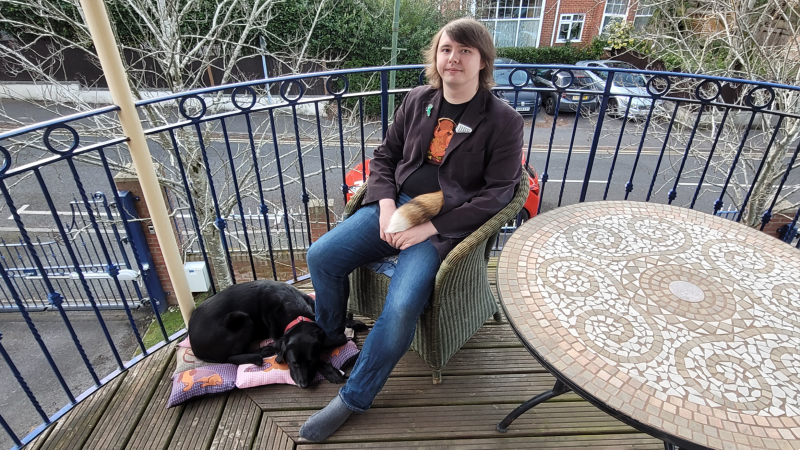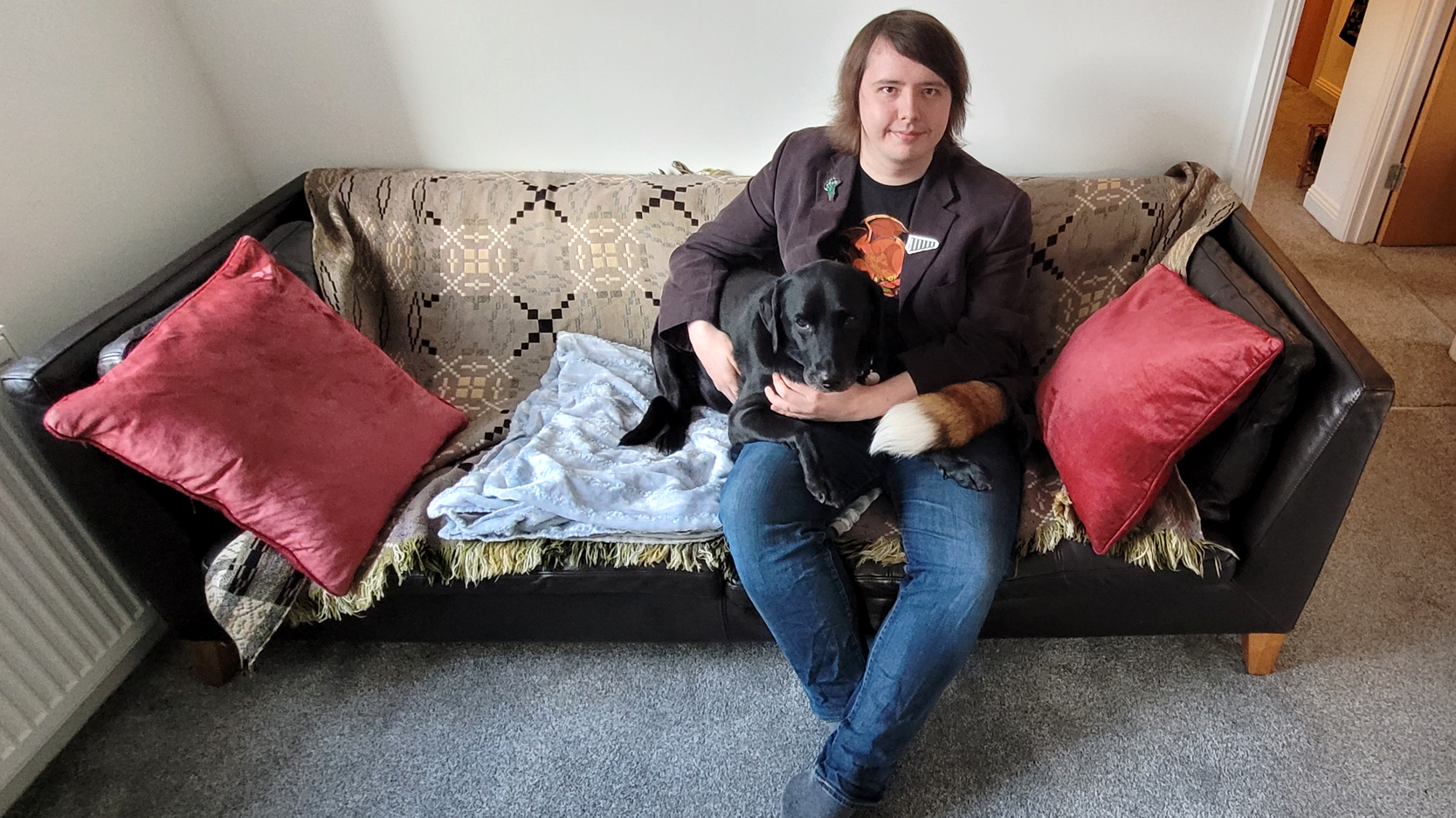Deards recalls being connected with the JPMorgan Chase Occupational Health department early in his tenure. There, he was able to find out more about different job accommodations (or adjustments, as they’re called in the UK) and things like the employee dress code.
Through his Occupational Health counselor, Deards was also able to identify a need for something to help him manage his social anxiety. The solution came in the form of an artificial tail he attaches to his belt loop to remind him of his dog, bringing him comfort.
“This is the first time in my entire life I can be myself,” he says. “Things certainly have changed since I was younger.”
Outside of work, Deards helps to run coding events at schools for students with special needs. While the COVID-19 pandemic curtailed this volunteer opportunity for a while, he’s looking forward to events getting back into full swing — and sharing his expertise to help others with disabilities.
He takes pride in dispelling preconceived notions of what it means to have Asperger’s or to be on the spectrum.
“Representation is a double-edged sword,” Deards says, noting that if you’ve met an autistic person, then you’ve met one autistic person. “Autism encompasses a wide range — that’s why they call it a spectrum — and the differences are enormous.”
Despite the challenges he’s faced, Deards notes that he’s had a lot of advantages and opportunities that other people haven’t.
“So I tell myself that if I can pay some of that forward and help make things a little better for even just one person, then the world will keep getting better,” he says.
“And for me, that would be enough.”
----
Autism at Work is a program run by the Office of Disability Inclusion at JPMorgan Chase. Learn how the new Global Head of Neurodiversity is driving inclusion for the whole neurodiverse community





